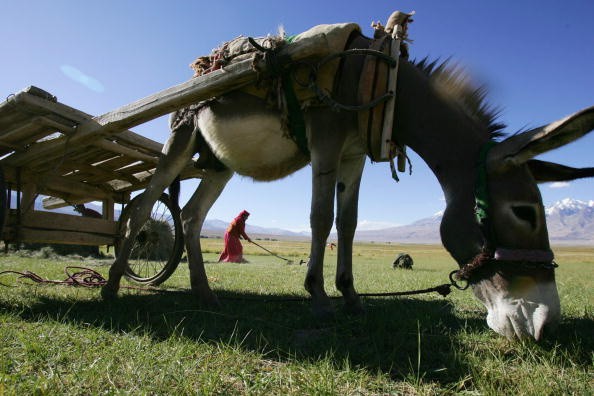A report has revealed that the growing demand for Chinese beauty products is putting donkey populations at risk and could eventually lead to the extinction of the species in Africa.
Every year, about six million donkeys are killed for their skins, from which collagen is extracted in food or drink supplements, as well as luxury cosmetics like face creams used in Chinese medicine.

The Donkey Sanctuary reported that the demand for such products has severely impacted China's donkey population, with a decline of 76% between 1992 and 2019.
Dealers are now focused on Africa, which has historically had the greatest number of donkeys worldwide. However, experts warned that the species is in danger as traders either steal donkeys for unlawful jungle slaughter or convince impoverished owners to sell their animals.
The trade is driven by the growing demand for the traditional Chinese remedy ejiao, or donkey hide glue, which can heal anemia, reduce wrinkles, increase libido, and boost energy.
According to the researchers, killing animals for their skins is not only extremely cruel, but it also negatively impacts women, children, and communities that depend on the animals.
The researchers at The Donkey Sanctuary used data from the skin industry and statistical modeling to reveal that 6.7 million skins will be required by 2027 to keep pace with demand. It is an increase from the 5.9 million, but the researchers noted that these figures are their most conservative estimate.
Africa has about 11 million donkeys, so the calculation has raised concerns.
The latest report from 2016 and 2021 shows that glue manufacturing increased by 160% in five years. It states that social media platforms encourage illegal trade by allowing sellers to advertise.
"Agents working for the ejiao industry persuade people, already living on the brink of poverty, to sell their animals for short-term gain," Calvin Solomon Onyango, director of The Donkey Sanctuary in Kenya, said. "The reality is the long-term loss of livelihood and, eventually, the loss of a way of life for many communities."
Onyango added that the destructive impact of the trade has led the governments of countries, including Kenya, Nigeria, and Tanzania, to outlaw donkey slaughter. However, he noted that they now see the emergence of illegal bush slaughter, with hundreds of donkeys taken or stolen and slaughtered for their skin.
Furthermore, he claimed that donkeys could join rhinos and elephants as an endangered species in Africa based on their observation in Kenya if the exploitation of donkeys continued for another three to six years.
Africa To Debate on Measure for Donkey Slaughter
Donkey slaughter is illegal in some countries and legal in others. On Sunday, the heads of state of the African Union will debate whether or not to ban the slaughter across the continent.
The researchers said it would be the most crucial donkey protection measure ever implemented in Africa.
A bill to outlaw the killing of donkeys is expected to pass the National Congress this year in Brazil, where large numbers of donkeys are also killed and trafficked for their skins.
Marianne Steele, chief executive of The Donkey Sanctuary, said that slaughtering six million donkeys yearly is an animal welfare disaster.
Steele noted that donkeys are a lifeline to people living in some of the most challenging environments where losing a donkey can be the difference between modest survival and poverty.
Related Article : Smiling Donkey Grateful For Rescue In Floods (PHOTOS)
© 2026 HNGN, All rights reserved. Do not reproduce without permission.








